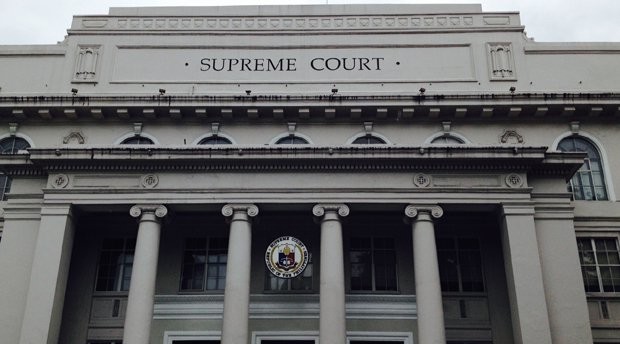The Supreme Court has stopped the Department of Energy (DOE) and the Energy Regulatory Commission (ERC) from implementing a new policy regulating big power consumers to source their electricity supply from any of the 23 retail electricity suppliers (RES) chosen by the ERC.
During Tuesday’s en banc, the high court, through its Information Chief Atty. Theodore Te said covered by the temporary restraining order is the implementation of DOE Circular No DC-2015-06-0010 and ERC Resolution No. 5, Series of 2016; Art. I, Secs. 2 and 3 thereof, ERC Resolution No. 10, Series of 2016; ERC Resolution No. 11, Series of 2016, and ERC Resolution No. 28, Series of 2016.
READ: SC to DOE, ERC: Answer petition vs rules for contestable power market
“The Court noted that petitioners have established a clear, legal right to the TRO (temporary restraining order) considering that the (Electric Power Industry Reform Act or ) EPIRA Law provides for voluntary migration of end-users to the contestable market and there appears to be no basis for the mandatory migration being ordered by the DOE and the ERC through the questioned issuances,” Te said.
The high court added that there is a need to issue the restraining order due to the Feb. 26, 2017 deadline of the ERC for end-users to enter into a retain supply contract with accredited retail electricity suppliers.
“If a TRO is not issued, the petition will become moot and petitioners stand to suffer grave and irreparable injury because they will be disconnected from the distribution utility or make to pay a supplier of last resort a 10 percent premium between the higher contracts and the Wholesale Electricity Spot Market,” the court pointed out.
The case stemmed from the petition filed by the Philippine Chamber of Commerce & Industry (PCCI), Ateneo De Manila University, San Beda College (Alabang) and mall owner Riverbanks Development Corporation.
The petitioners specifically asked the high court to immediately put a stop to the implementation of the new regulations that compel power consumers with a monthly average peak demand of 1 Megawatt (MW) to abandon their current power supply contracts and enter into new contracts with any of the 23 suppliers chosen by the ERC to supply the contestable market.
Named respondents in the suit were DOE Secretary Alfonso Cusi, ERC Chair Jose Vicente Salazar and incumbent ERC Commissioners Alfredo Non, Gloria Victoria Yap-Taruc, Josefina Patricia Asirit and Geronimo Sta. Ana.
The new resolutions, according to the petitioners will not promote free competition among power suppliers and will lead to higher prices of electricity that would impact negatively on the economy.
The petitioners argued that the new regulations would limit their choice of suppliers by prohibiting distribution utilities from participating in the contestable market even if the distribution utilities can offer the lowest price to consumers. RAM


